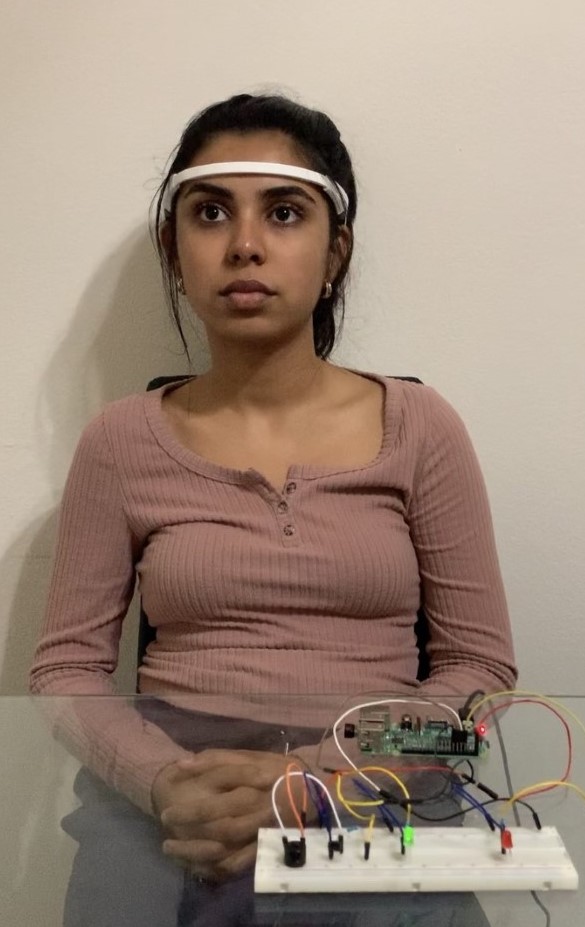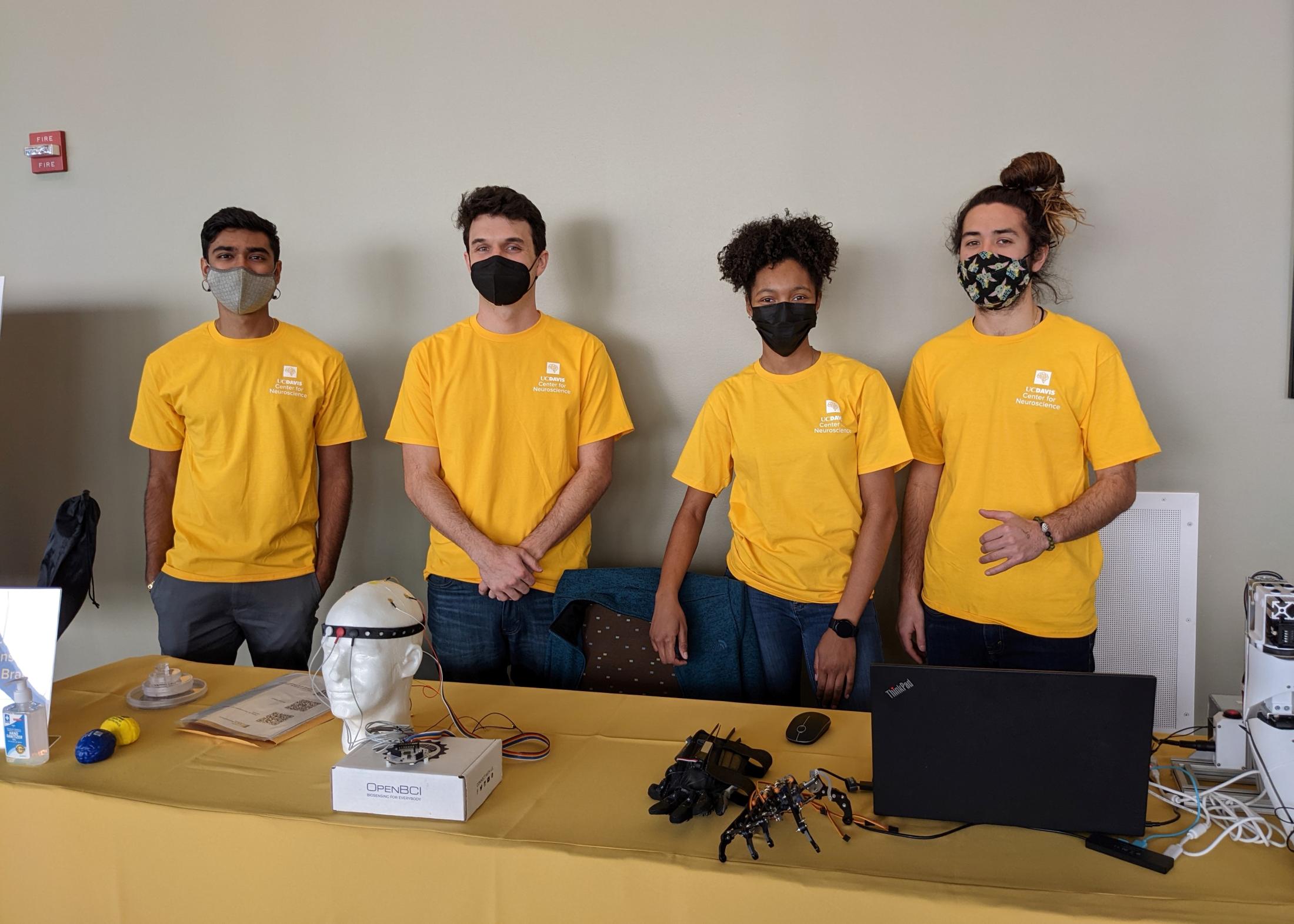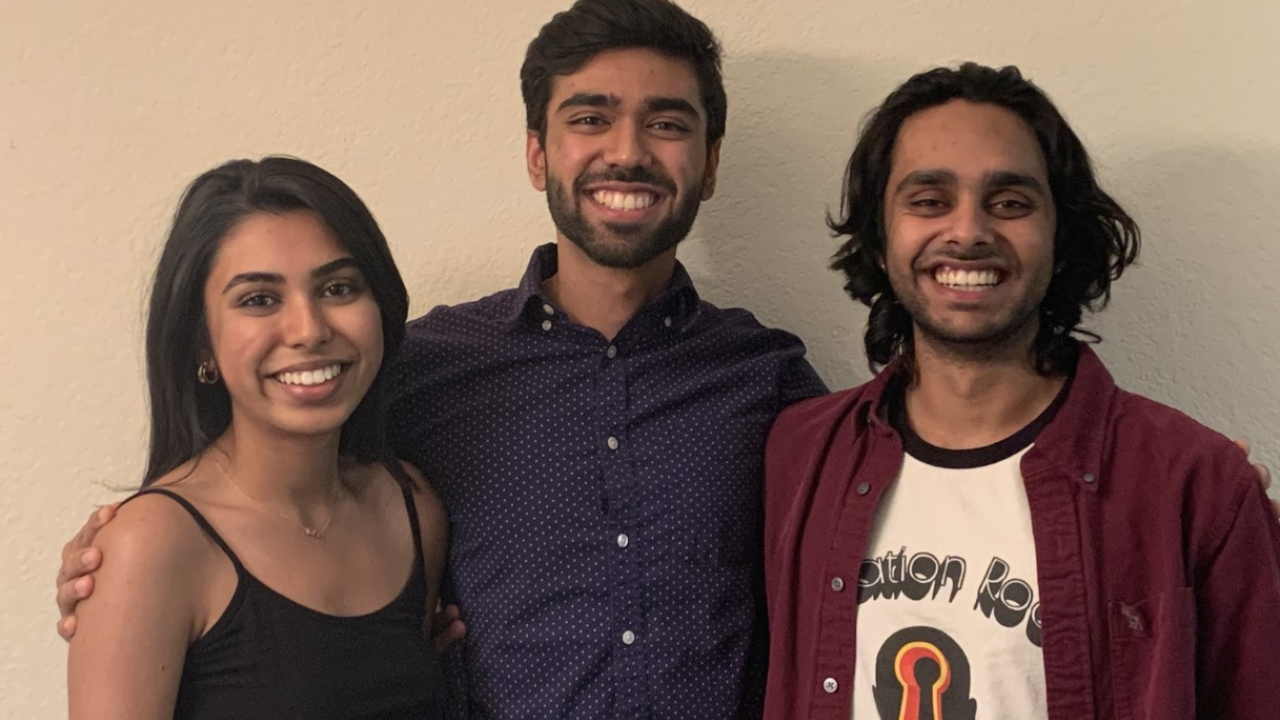
Neurotech@Davis Student Club: Undergraduate Students Learn about Neurotechnology
Neurotech@Davis is a UC Davis student-led organization whose mission is to facilitate the advancement and awareness of neurotechnology by providing undergraduates with the opportunity to foster skills in the industry. The club is the brainchild of Kushaal Rao, an entrepreneurial student who wanted to create a community for undergraduate students interested in neuroengineering in response to a lack of resources and opportunities at the undergraduate level.
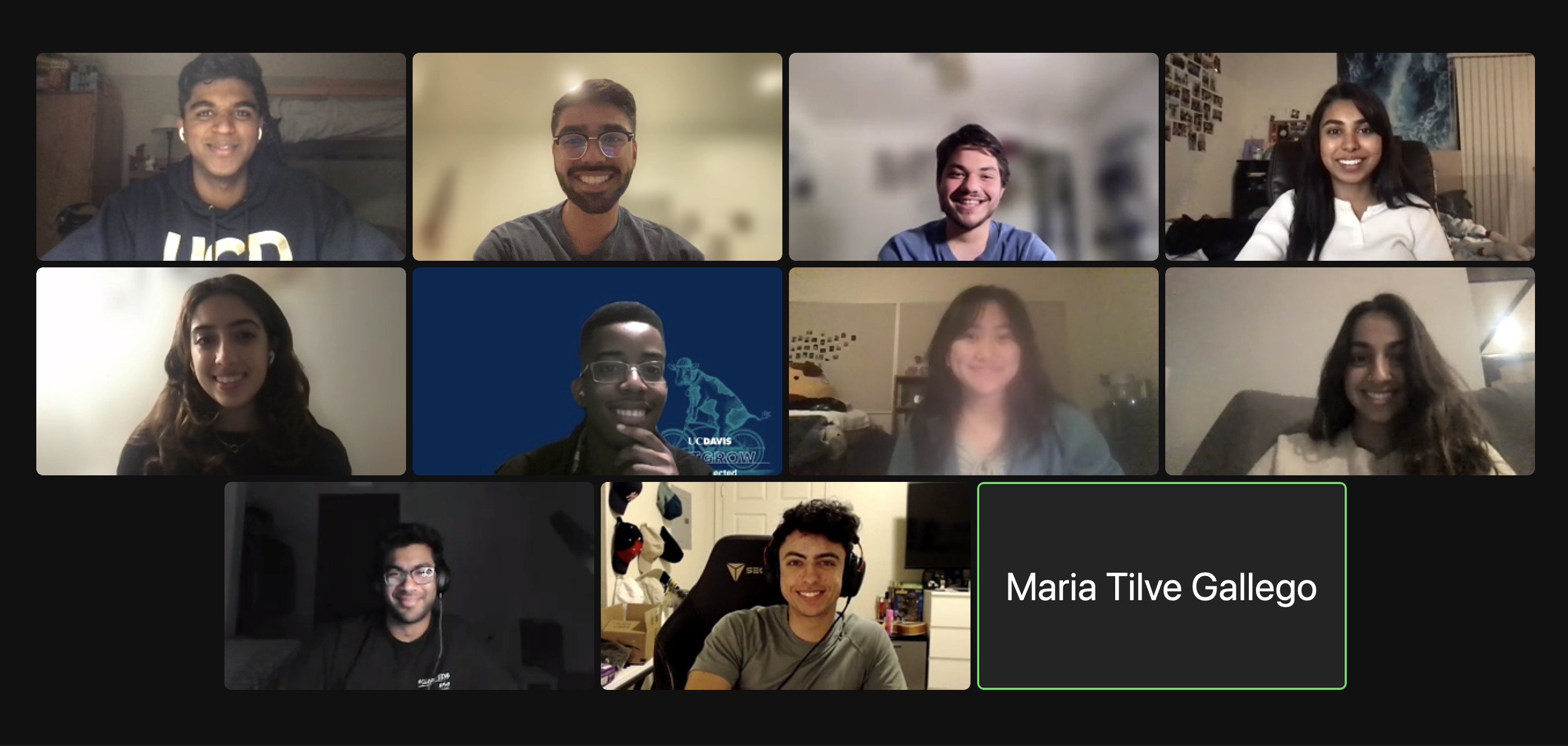
Kushaal entered UC Davis as a computational cognitive science major because he was interested in the intersection of computation and neuroscience. At the beginning of his sophomore year, he applied for a research position in Dr. Steve Luck’s laboratory at the Center for Mind and Brain, where he learned the fundamentals of EEG data collection, signal processing, and EEG decoding. Around that time, he learned about brain-computer interfaces (BCI) and knew immediately that this was precisely what he was looking for all along.
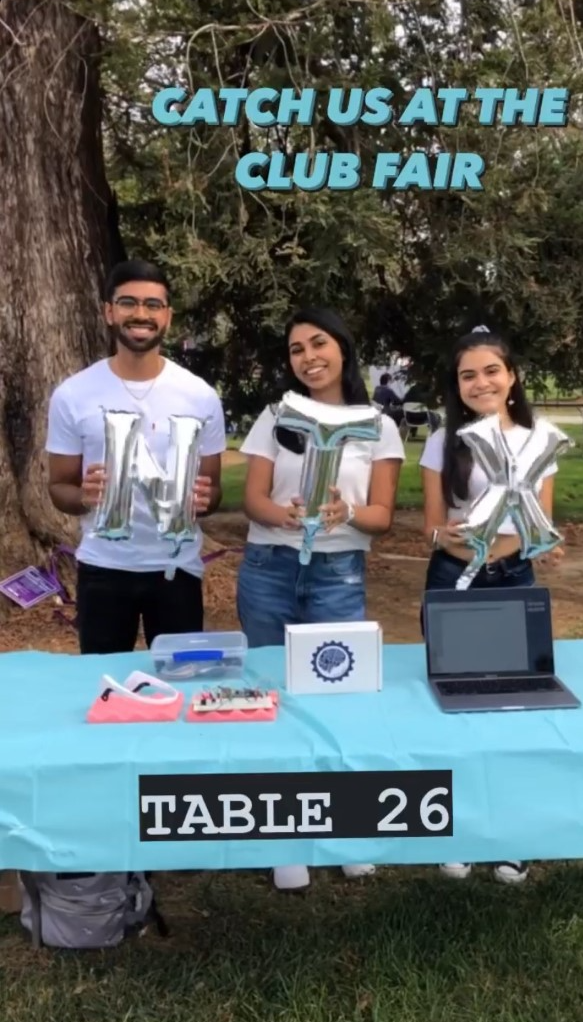
After conducting more research on BCIs, Kushaal found NeuroTechX, an international nonprofit organization focused on all-things neuroengineering and decided to start a chapter at UC Davis. He inquired with other students about their interests and co-founded Neurotech@Davis with Jagveer Singh (computer science, senior), Mateo Pitkin (cognitive science, sophomore) and Sudhan Wosti (computer science and engineering, junior). Professors Karen Moxon and Erkin Şeker serve as faculty advisors.
Since its inception in November 2019, Neurotech@Davis has worked hard to deliver on its primary goals: (1) provide hands-on opportunities for undergraduates to build BCIs; (2) create educational content and resources for a beginner-friendly introduction to BCIs; and (3) host speakers from academia and industry, to increase students’ exposure to different areas of neuroengineering.
The composition of the club’s leadership and general body membership reflects the nature of neuroengineering as a highly interdisciplinary field: students hail from Cognitive Science, Psychology, English, Computer Science, Computer Engineering, Neurobiology, Physiology and Behavior and many other majors. Establishing an environment that could amplify diverse perspectives and promote equity and inclusion for all its members is actively pursued: six out of the nine executive board members are women, five of whom are racial minorities. All the club’s members come from diverse academic and demographic backgrounds and cover the gamut from novice to inveterate neurotech enthusiasts. Neurotech@Davis members routinely write articles on various topics from neuroscience and psychology to philosophy and data science. Still, the common thread among all of these topics is a deliberate effort to demystify the technical language and create content that is easy for a broader audience to understand and engage with.
The club’s publication and projects teams are highly collaborative and designed to build upon ideas from all of its members, which makes for an inclusive environment where individuals’ voices are heard and valued. The club officers employ quarterly evaluation and feedback forms to gather feedback from the rest of the team and act on it while maintaining transparent channels of communication within the organization.
By all accounts, the club has been wildly successful, COVID pandemic notwithstanding. Neurotech@Davis grew from an idea to 100+ members in less than a year, signaling strong interest in the growing field of neuroengineering among the undergraduate population at UC Davis. Its members:
- Published over 30 articles about neurotech companies and technologies on Medium, an online publishing platform where expert and novice voices can share their writing on any topic.
- Organized multiple neurotech seminars each year, with faculty and industry leaders like Kernel, Paradromics and Cognixion as speakers.
- Obtained sponsorship in the form of hardware from OpenBCI and Muse valued at over $1,000 and established partnerships with companies to conduct beta testing of software.
- Built a BCI and competed in the NeuroTechX Student Club Competition. In their first global competition, Neurotech@Davis ranked second in the U.S. (BCI project).
- Created a series of educational modules on YouTube covering an intro to BCIs, EEG data analysis, and signal processing.
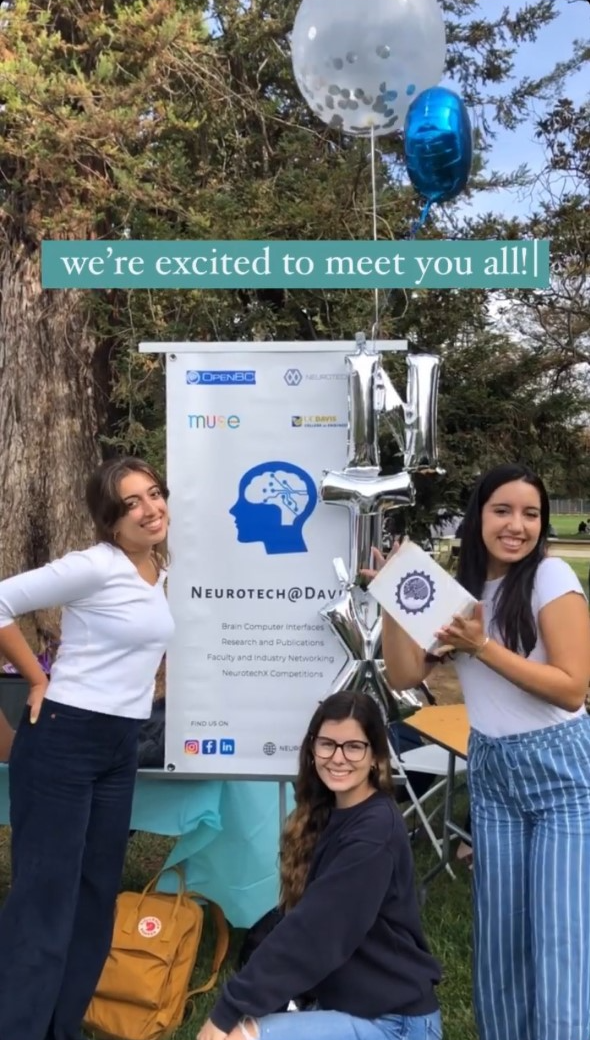
Having built a successful organization over the past tumultuous 2.5 years, the leadership team is excited about the future as the organization continues to grow. Current plans include the launch of a new education division, where Neurotech@Davis aims to introduce high schoolers to the field of neuroscience. The club wants to reach more people and increase exposure by providing educational resources and opportunities in the long term.
What’s next for Kushaal? As he draws close to graduating with a B.S. degree in Computational Cognitive Science and a double minor in Computer Science and Neuroscience, the club co-founder and president is deciding where he will go for his graduate degree, having been accepted by several competitive programs. Kushaal envisions a career as a research scientist developing rehabilitative and therapeutic BCIs. In addition to creating resources and opportunities for undergraduates interested in neuroengineering at UC Davis, launching and leading Neurotech@Davis helped him discover a passion for scientific outreach, mentorship and community building, which he plans to continue pursuing during graduate school. No matter his next steps, all signs point to a bright future and exciting opportunities!
